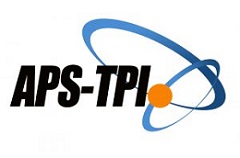Exploring Teachers' Needs for Technology-Based Learning in Elementary Education
Abstract
The integration of 21st-century skills, such as critical thinking, collaboration, and digital literacy, into elementary science education remains suboptimal. Preliminary observations in Purwantoro indicate that traditional teaching methods dominate, with limited use of interactive media, restricting the development of essential student competencies. This study addresses the need for innovative learning tools by exploring the potential of Smart Apps Creator (SAC) in enhancing IPAS (science and social studies) education. Employing a qualitative descriptive approach, data were gathered from five elementary school teachers through interviews, observations, and document analysis, meanwhile, the data analysis technique in this research uses descriptive analysis techniques. Findings reveal that SAC-based media effectively meet teachers’ needs by providing interactive features that promote engagement and independent learning. However, challenges such as limited infrastructure and teacher training were identified. The study underscores the significance of aligning educational practices with the demands of the digital era by integrating interactive media into the curriculum. It highlights the role of SAC in fostering 21st-century skills, offering practical recommendations for professional development and curriculum enhancement. It is hoped that the results of this research will have implications for innovative and technology-based learning as a step to accommodate learning in elementary schools more optimally.
Keywords
Full Text:
PDFReferences
Afnan, Muhammad, K., Khan, N., Lee, M.-Y., Imran, A., & Sajjad, M. (2021). School of the Future: A Comprehensive Study on the Effectiveness of Augmented Reality as a Tool for Primary School Children’s Education. Applied Sciences, 11(11), 5277. https://doi.org/10.3390/app11115277
Agustini, M., Yufiarti, & Wuryani. (2020). Development of learning media based on android games for children with attention deficit hyperactivity disorder. International Journal of Interactive Mobile Technologies, 14(6). https://doi.org/10.3991/IJIM.V14I06.13401
Akram, H., Abdelrady, A. H., Al-Adwan, A. S., & Ramzan, M. (2022). Teachers’ Perceptions of Technology Integration in Teaching-Learning Practices: A Systematic Review. Frontiers in Psychology, 13. https://doi.org/10.3389/fpsyg.2022.920317
Alneyadi, S., Wardat, Y., Alshannag, Q., & Abu-Al-Aish, A. (2023). The effect of using smart e-learning app on the academic achievement of eighth-grade students. Eurasia Journal of Mathematics, Science and Technology Education, 19(4), em2248. https://doi.org/10.29333/ejmste/13067
Anastasiadis, T., Lampropoulos, G., & Siakas, K. (2018). Digital Game-based Learning and Serious Games in Education. International Journal of Advances in Scientific Research and Engineering, 4(12), 139–144. https://doi.org/10.31695/ijasre.2018.33016
Anggraeni, P., Sunendar, D., Maftuh, B., Sopandi, W., & Puspita, R. D. (2022). Why 6 Cs? The Urgency of Learning at Elementary School. Proceedings of the 4th International Conference on Educational Develop Ment and Quality Assurance (ICED-QA 2021). https://doi.org/10.2991/assehr.k.220303.008
Antara, I. G. W. S., & Dewantara, K. A. K. (2022). E-Scrapbook: The Needs of HOTS Oriented Digital Learning Media in Elementary Schools. Journal for Lesson and Learning Studies, 5(1), 71–76. https://doi.org/10.23887/jlls.v5i1.48533
Aprilia, T., Sunardi, S., & Djono, D. (2017). Penggunaan Media Sains Flipbook dalam Pembelajaran IPA di Sekolah Dasarr. Teknodika, 15(2), 75. https://doi.org/10.20961/teknodika.v15i2.34749
Aslamiah, A., Abbas, E. W., & Mutiani, M. (2021). 21st-Century Skills and Social Studies Education. The Innovation of Social Studies Journal, 2(2), 82. https://doi.org/10.20527/iis.v2i2.3066
Asrizal, Yurnetti, & Usman, E. A. (2022). ICT THEMATIC SCIENCE TEACHING MATERIAL WITH 5E LEARNING CYCLE MODEL TO DEVELOP STUDENTS’ 21ST-CENTURY SKILLS. Jurnal Pendidikan IPA Indonesia, 11(1). https://doi.org/10.15294/jpii.v11i1.33764
Barus, R. A. (2024). 4C SKILLS OF THE 21ST CENTURY: THEIR NATURE AND IMPORTANCE IN PRIMARY SCHOOL LEARNING. Multidisciplinary Indonesian Center Journal (MICJO), 1(2), 689–696. https://doi.org/10.62567/micjo.v1i2.88
Bautista, A., Yeung, J., Mclaren, M. L., & Ilari, B. (2024). Music in early childhood teacher education: raising awareness of a worrisome reality and proposing strategies to move forward. Arts Education Policy Review, 125(3), 139–149. https://doi.org/10.1080/10632913.2022.2043969
Bhangu, S., Provost, F., & Caduff, C. (2023). Introduction to qualitative research methods - Part i. Perspectives in Clinical Research, 14(1). https://doi.org/10.4103/picr.picr_253_22
Boyles, T. (2012). 21 st century knowledge, skills, and abilities and entrepreneurial competencies: A model for undergraduate entrepreneurship education. Journal of Entrepreneurship Education, 15(1), 41–64. https://www.abacademies.org/articles/jeevol152012.pdf
Braun, V., & Clarke, V. (2006). Using thematic analysis in psychology. Qualitative Research in Psychology, 3(2), 77–101. https://doi.org/10.1191/1478088706qp063oa
Budiarto, M. K., Rejekiningsih, T., & Sudiyanto, S. (2021). Students’ opinions on the need for interactive multimedia development for entrepreneurship learning. International Journal of Evaluation and Research in Education (IJERE), 10(4), 1290–1297. https://doi.org/http://doi.org/10.11591/ijere.v10i4.21411
Chang, C.-Y., Du, Z., Kuo, H.-C., & Chang, C.-C. (2023). Investigating the Impact of Design Thinking-Based STEAM PBL on Students’ Creativity and Computational Thinking. IEEE Transactions on Education, 66(6), 673–681. https://doi.org/10.1109/TE.2023.3297221
Chauvette, A., Schick-Makaroff, K., & Molzahn, A. E. (2019). Open Data in Qualitative Research. International Journal of Qualitative Methods, 18. https://doi.org/10.1177/1609406918823863
Chuang, C., & Jamiat, N. (2023). A systematic review on the effectiveness of children’s interactive reading applications for promoting their emergent literacy in the multimedia context. Contemporary Educational Technology, 15(2), ep412. https://doi.org/10.30935/cedtech/12941
Creswell, J. W. (2014). Research Design: Qualitative, Quantitative, and Mixed Methods Approaches (4th (ed.)). Sage Publications.
Daga, A. T. (2022). Penerapan Pendekatan Saintifik dalam Kurikulum 2013 untuk Mengembangka n Keterampilan Abad 21 Siswa Sekolah Dasar. JIRA: Jurnal Inovasi Dan Riset Akademik, 3(1), 11–28. https://doi.org/10.47387/jira.v3i1.137
Dahri, N. A., Al-Rahmi, W. M., Almogren, A. S., Yahaya, N., Vighio, M. S., & Al-Maatuok, Q. (2023). Mobile-Based Training and Certification Framework for Teachers’ Professional Development. Sustainability, 15(7), 5839. https://doi.org/10.3390/su15075839
Denzin, N. K. (2012). The Sage handbook of qualitative research (4th (ed.)). Sage Publications.
Ella, A. F., Faathira, A., & Andhiena, R. C. (2024). The Importance of Teacher Competence in The 21st Century in Improving The Critical Thinking Skills of Elementary School Students in IPAS Learning. Social, Humanities, and Educational Studies (SHES): Conference Series. https://doi.org/10.20961/shes.v7i3.91618
Estrada Oliver, L., Rodriguez, L., & Pagan, A. (2020). Tales from PE: Using Project-Based Learning to Develop 21st-Century Skills in PETE Programs. Strategies, 33(4), 45–48. https://doi.org/10.1080/08924562.2020.1764305
Fatimah, & Nugroho, D. A. (2023). Strengthening Digital Citizenship Values in Pancasila dan Civics Learning in the 21st Century. ASSEHR 768, 948–954. https://doi.org/10.2991/978-2-38476-096-1
Frèrejean, J., Geel, M. v., Keuning, T., Dolmans, D., Merriënboer, J. J. G. van, & Visscher, A. J. (2021). Ten Steps to 4c: Training Differentiation Skills in a Professional Development Program for Teachers. Instructional Science, 49(3), 395–418. https://doi.org/10.1007/s11251-021-09540-x
García, J. M. G.-V., García-Carmona, M., Trujillo Torres, J. M., & Moya-Fernández, P. (2021). Teacher Training for Educational Change: The View of International Experts. Contemporary Educational Technology, 14(1), ep330. https://doi.org/10.30935/cedtech/11367
Greipl, S., Moeller, K., & Ninaus, M. (2020). Potential and limits of game-based learning. International Journal of Technology Enhanced Learning, 12(4), 363. https://doi.org/10.1504/IJTEL.2020.110047
Haryani, E., Coben, W. W., Pleasants, B. A.-S., & Fetters, M. K. (2021). Analysis of Teachers’ Resources for Integrating the Skills of Creativity and Innovation, Critical Thinking and Problem Solving, Collaboration, and Communication in Science Classrooms. Jurnal Pendidikan IPA Indonesia, 10(1), 92–102. https://doi.org/10.15294/jpii.v10i1.27084
Hasibuan, B. S., Ilham, Z., Bangun, S. Y., Sunarno, A., Suganda, M. A., & Suryadi, D. (2024). Interactive learning media for martial arts using smart apps creator: A development study for pencak silat training. Fizjoterapia Polska, 24(3), 303–310. https://doi.org/10.56984/8ZG020AH7F
Husna, E. A. (2022). PROJECT-BASED 21S- CENTURY THEMATIC LEARNING MEDIA DEVELOPMENT USING SAC FOR ELEMENTARY SCHOOL STUDENTS. EduHumaniora | Jurnal Pendidikan Dasar Kampus Cibiru, 14(1), 75–82. https://doi.org/10.17509/eh.v14i1.39090
Ida, S., Aziz, R., & Irawan, W. H. (2021). CRITICAL AND CREATIVE THINKING SKILLS TO SOLVING MATH STORY PROBLEMS IN ELEMENTARY SCHOOL STUDENTS. Jurnal Tatsqif, 19(2). https://doi.org/10.20414/jtq.v19i2.4069
Ifliadi, I., Suhaidi, Prasetyo, I., Mendrofa, L. I., & Hendrawati, E. S. (2024). UTILIZATION OF DIGITAL-BASED LEARNING MEDIA IN THE INDEPENDENT CURRICULUM IN ELEMENTARY SCHOOLS. Proceedings of International Conference on Education, 2(1), 706–715. https://doi.org/10.32672/pice.v2i1.1348
Jannah, D. R. N., & Atmojo, I. R. W. (2022). Media Digital dalam Memberdayakan Kemampuan Berpikir Kritis Abad 21 pada Pembelajaran IPA di Sekolah Dasar. Jurnal Basicedu, 6(1), 1064–1074. https://doi.org/10.31004/basicedu.v6i1.2124
Kalobo, L., & Setlalentoa, W. (2024). Navigating Challenges in Gifted Education: A Teacher’s Perspective on Overcoming Barriers. Athens Journal of Education, 11(4), 269–288. https://doi.org/10.30958/aje.11-4-1
P., D. I., J., J., T., S., & Enjang, Y. A. (2023). Developing Android-Based Learning Media to Enhance Early Reading Competence of Elementary School Students. Pegem Journal of Education and Instruction, 13(4). https://doi.org/10.47750/pegegog.13.04.06
Panggalih, R. H., & Handayani, D. E. (2023). PENGEMBANGAN MEDIA PEMBELAJARAN MATERI SISTEM PERNAPASAN MANUSIA BERBANTUKAN APLIKASI SAC UNTUK SEKOLAH DASAR. JURNAL TARBIYAH, 30(1), 176. https://doi.org/10.30829/tar.v30i1.2693
Patton, M. Q. (2002). Qualitative Research & Evaluation Methods (3rd (ed.)). Sage Publications.
Puertas-Aguilar, M.-Á., Álvarez-Otero, J., & de Lázaro-Torres, M.-L. (2021). The Challenge of Teacher Training in the 2030 Agenda Framework Using Geotechnologies. Education Sciences, 11(8), 381. https://doi.org/10.3390/educsci11080381
Rawal, D. M. (2024). Mapping of school teachers’ digital competency in the context of digital infrastructure: a systematic review and empirical study of India. Journal of Professional Capital and Community, 9(3), 173–195. https://doi.org/10.1108/JPCC-01-2024-0016
Rejekiningsih, T., Maulana, I., Budiarto, M. K., & Qodr, T. S. (2023). Android-based augmented reality in science learning for junior high schools: Preliminary study. International Journal of Evaluation and Research in Education, 12(2). https://doi.org/10.11591/ijere.v12i2.23886
Rifa Hanifa Mardhiyah, Sekar Nurul Fajriyah Aldriani, Febyana Chitta, & Muhamad Rizal Zulfikar. (2021). Pentingnya Keterampilan Belajar di Abad 21 sebagai Tuntutan dalam Pengembangan Sumber Daya Manusia. Lectura : Jurnal Pendidikan, 12(1), 29–40. https://doi.org/10.31849/lectura.v12i1.5813
Rindiana, T., Arifin, M. H., & Wahyuningsih, Y. (2022). MODEL PEMBELAJARAN RADEC UNTUK MENINGKATKAN HIGHER ORDER THINGKING SKILL DALAM PEMBELAJARAN IPS DI SEKOLAH DASAR. Autentik : Jurnal Pengembangan Pendidikan Dasar, 6(1), 89–100. https://doi.org/10.36379/autentik.v6i1.186
Saad, A., & Zainudin, S. (2022). A review of Project-Based Learning (PBL) and Computational Thinking (CT) in teaching and learning. Learning and Motivation, 78, 101802. https://doi.org/10.1016/j.lmot.2022.101802
Saimon, M., Lavicza, Z., & Dana-Picard, T. (Noah). (2023). Enhancing the 4Cs among college students of a communication skills course in Tanzania through a project-based learning model. Education and Information Technologies, 28(6). https://doi.org/10.1007/s10639-022-11406-9
Sari, D., Hidayasari, N., & Elfa, F. (2024). Need Analysis of Making of Mobile Assisted Language Learning (MALL), an Android Based Application for English for Tourism and Hospitality (Etority), for Vocational Students. Proceedings of the 11th International Applied Business and Engineering Conference, ABEC 2023. https://doi.org/10.4108/eai.21-9-2023.2342988
Sarwanto, S., Fajari, L. E. W., & Chumdari, C. (2021). Open-Ended Questions to Assess Critical-Thinking Skills in Indonesian Elementary School. International Journal of Instruction, 14(1), 615–630. https://doi.org/10.29333/iji.2021.14137a
Suhartati, O. (2021). Flipped Classroom Learning Based on Android Smart Apps Creator (SAC) in Elementary Schools. Journal of Physics: Conference Series, 1823(1), 012070. https://doi.org/10.1088/1742-6596/1823/1/012070
Sutimah, S., & Tyas, D. N. (2024). Implementasi Model Pembelajaran Inquiry Based Learning pada Mata Pelajaran IPAS dalam Konteks Kurikulum Merdeka di Sekolah Dasar. Jurnal Basicedu, 8(4), 2941–2952. https://doi.org/10.31004/basicedu.v8i4.8307
Thaariq, A. (2020). The Use of Social Media as Learning Resources to Support the New Normal Zahid Zufar At Thaariq, 1. Teknodika, 18(2), 80–93.
Tlili, A., Huang, R., Shehata, B., Liu, D., Zhao, J., Hosny, A., Metwally, S., Wang, H., Denden, M., Bozkurt, A., Lee, L. H., Beyoglu, D., Altinay, F., Sharma, R. C., Altinay, Z., Li, Z., Liu, J., Ahmad, F., Hu, Y., & Salha, S. (2022). Is Metaverse in education a blessing or a curse : a combined content and bibliometric analysis. Smart Learning Environments. https://doi.org/10.1186/s40561-022-00205-x
Widiyatmoko, A., Utaminingsih, S., & Santoso. (2021). Android-based math learning to improve critical thinking. Journal of Physics: Conference Series, 1823(1). https://doi.org/10.1088/1742-6596/1823/1/012091
Widya Karmila Sari Achmad, & Unga Utami. (2023). High-Order Questions Improve Students’ Critical Thinking Skills In Elementary Schools. International Journal of Elementary Education, 7(2), 196–203. https://doi.org/10.23887/ijee.v7i2.61607
Zainil, M., Kenedi, A. K., Rahmatina, Indrawati, T., & Handrianto, C. (2022). The Influence of a STEM-Based Digital Classroom Learning Model and Hig h-Order Thinking Skills on the 21st-Century Skills of Elementary Schoo l Students in Indonesia. Journal of Education and E-Learning Research, 10(1), 29–35. https://doi.org/10.20448/jeelr.v10i1.4336
Refbacks
- There are currently no refbacks.





.png)













